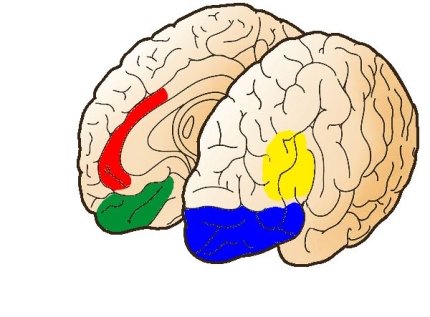Modern grueling war is a "war of management and logistics." In this struggle for Ukraine's independence, the "organizational weapon" is a decisive factor, because educated and intelligent nations win. Modern assets of Bohdan Tkach's neuropedagogy will help to identify the neuropersonal type of a person for his effective work in a team.
The material was prepared with expert support of the Scientific and Practical Center of Neuropsychology and Psychosomatics at Deva Clinique.
Scientific supervisors of the center:
Bohdan Tkach, D.SC., MD, Professor of neuropsychology, head of the center, founder of the Ukrainian scientific school of neuropsychology.
Vasyl Mosiychuk, Ph.D., Professor of Psychology, founder and owner of Deva Clinique.
Vitaly Lunyov, Ph.D., Academician of the Academy of Sciences of Ukraine, clinical professor of psychology and clinical psychoanalysis.
A neuropersonal test to determine your type
The Scientific and Practical Center of Neuropsychology and Psychosomatics at Deva Clinic has created a tool for diagnosing the metacognitive sphere of the psyche - the functional state of all areas of the frontal cortex of the brain ("the organ of civilization").
With the help of the tool "Neuro-personological test of Tkach-Lunyov-Mosiychuk" you can form teams to perform specific tasks. It is advisable to use these developments in management.
Conditions of the front part of the cerebral cortex:

Brain structures are associated with eight neuropersonal types.
Yellow – dorsolateral part of the prefrontal cortex;
In blue - the orbito-frontal part of the prefrontal cortex of the brain;
Green – the ventromedial part of the prefrontal cortex of the brain;
In red is the anterior cingulate cortex of the brain.
The norm in neuropsychology is multivariate, because each person's brain is unique at the anatomical and functional level. Therefore, the term strengthening or weakening is conditional and determines how much the indicator deviates from the arithmetic mean.
8 neuropersonal types
People with functional enhancement of the dorsolateral part of the prefrontal cortex of the brain are:
original,
bright,
talented,
creative,
intellectual,
stable in their worldview beliefs,
with internal locus control,
with good aesthetic taste.
This neuropersonal type fills the world with spiritual heritage and changes paradigms in society. Their solutions are full of humanism and innovation. Society controls them a lot and treats them in two ways: it admires them and hatefully destroys them. They are best suited as managers in the field of art and science. Often they ignore safety rules to discover something new in the properties of mechanisms or production process, etc. This is how they make discoveries.
Persons with manifestations of weakening of the dorsolateral part of the prefrontal cortex of the brain are characterized by:
weak willed
conformism,
suggestiveness,
heritability,
simplicity,
naivety,
reduced attention
They work not for themselves, but for someone else, they help realize other people's dreams, not their own, they do not create their own model of the world, but use the one created by mytho-designers. Extremely pronounced conformism in relation to others and society. These individuals are like "plasticine", their behavior is easy to adjust, but the effect is short-lived if the environment changes. They follow safety rules and other regulations very well. Almost everything is done with the approval of others.
People with functional enhancement of the orbito-frontal part of the prefrontal cortex of the brain are:
highly organized,
intellectuals,
with management talent,
virtuous,
moral,
balanced,
with internal locus control.
Society in difficult periods of existence is favorable to them, and in stable conditions it treats them with contempt and envy. They are best suited for crisis management and managing large groups of people. These are born security leaders and not only that.
Persons with manifestations of weakening of the orbito-frontal part of the prefrontal cortex of the brain are characterized by:
infantility;
impulsiveness;
emotional lability;
hedonistic motivation;
moral agnosia;
moral apraxia;
search activity;
risk appetite.
Mostly, these people first act, and then maybe think about what they have done. However, the large number of attempts and the ease of breaking the rules gives them an advantage in some respects. It is in this way that many discoveries and many injuries occur in the workplace.
People with functional enhancement of the ventromedial part of the prefrontal cortex of the brain are:
empathic,
intellectual,
good-natured,
prosocial,
honest,
generous
It is very difficult for such a neuropsychological type in a society of corrupt people. If they have not created their own microcosm, they will face maladjustment and despair in life. Managers of this type are best suited for managing funds, because they really do not steal, but are fascinated by the process of creation.
Persons with manifestations of weakening of the ventromedial part of the prefrontal cortex of the brain are characterized by:
charisma,
lack of conscience
lack of empathy
good intellectual abilities.
Advanced intelligence makes it possible to exploit, manipulate and parasitize others. The lack of shame, duty and responsibility makes it easy to go beyond morality. This is the most successful type in a hierarchical society.
People with functional enhancement of the anterior cingulate cortex of the brain are:
highly intelligent,
with high modeling ability,
and high prognostic ability.
They are best suited to managing large-scale processes spread over time.
For persons with manifestations of weakening of the anterior cingulate cortex of the brain , it is characteristic:
rigidity,
getting stuck in a certain activity
prognostic failure,
intellectual weakness,
conservatism.
This type is very hostile to innovation and is best suited to maintaining traditions and supervising other people.
Each of the neurotypes is important and best suited to certain activities.
Where to take the test
You can take the test at the link .
For consultations and cooperation, contact the Scientific and Practical Center of Neuropsychology and Psychosomatics, Deva Clinic .
Get acquainted with Bohdan Tkach's monograph "NeuroSTEM. The implementation of person-centered neuropedagogy by Bohdan Tkach (2014) in STEM education" can be found at the link .

